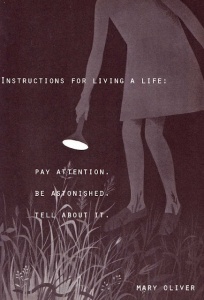I can see those two fancy squatty buildings on the west side of the metro that I see as we drive on highway 100. I can see a half dozen cranes that look like they’re protecting the new football field construction in downtown Minneapolis. I can see the roofs and windows of hundred-year-old buildings that have been refurbished, repurposed, and reconstructed over and over again to house the now world-class medicine-organization, which is the hospital that I work for this summer. This is my classroom. This is my parish. This is by far the weirdest class credit I’ve ever taken. This is by far the most high-stakes class credit I’ve ever taken.
Since switching from the Master of Arts back to the Master of Divinity, I get to take the pastor-track-related credit, Clinical Pastoral Education (CPE), which many refer to as the, “just get it done” credit. Just get through it. Take it in the summer – it’s longer hours but fewer weeks. Sounds good to me.
But once I got here, got my badge, my employee parking pass, my pager, and our rotating on-call pager and code blue pager, something felt different than, “just get it done.” Once I saw the list of patients names who wanted a chaplain to visit them, once I read why they were there, once I heard their stories of purpose, desires to walk, meaning, oops, oops again, heartache, the people they miss at home, and the people they wish would move out, I realized this is much more than “just get it done.”
True, this is chaplaincy. My task in this credit is to be a chaplain, which is a different flavor of pastoral-congregational ministry, the route most consider when they enter the MDiv program. I’m the chaplain for my assigned unit, and each intern, resident chaplain (super intern), and board certified chaplain has an assigned unit. At my unit I’m the one who usually asks nurses and physicians, “What’s going on with them?” before I say hi, and sometimes I get asked by nurses and physicians, “What’s going on with them?” Here, I am becoming known. I’m their chaplain. I hope I get so lucky as to be missed come August.

Sometimes a chaplain visit is requested on my unit, but more often than not my day is guided by following energy. I follow the energy as a nurse struggles to finish out recording a note and connect with other units and we talk about how lame it is when shifts don’t end when they’re supposed to. I follow the energy as a patient just glows at the mention of walking around the lake, and she tell me it feels like “freedom,” and then we draw pages together in a nature coloring book (yes that happened, it was awesome). I follow the energy when I pass a waiting room and glance at the serious folks in there, and then walk back to merely sit and talk about whatever they want to talk about for 20 minutes.
In the midst of this, Timothy (The best. Spouse of the year. Thanks for letting me beat you at tennis later.) and I are calling moving truck people and looking up on Google maps the distance between stops between here and Washington state, as we start a new chapter out there in September. That will come soon enough.
But for now I’m just trying to be as much Allison as I can while also being a chaplain. I’m sure some use CPE to “try on” what it means or feels like to be a pastor or a chaplain. I don’t think that’s for me. What I think is working, is being myself, while showing up in the world through this vocation as a chaplain/pastor. Who knew it took so much courage to show up as yourself. But it’s a good challenge, a good opportunity. And I get to use colored pencils and talk about where we want to live when we grow up.
I’m not sure what’s next. I just know who will be there: 1. Allison, 2. God.



